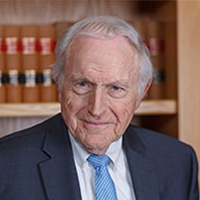New Town Real Estate Other Lawyer, Massachusetts, page 5
Sponsored Law Firm
-
 x
x

Click For More Info:
-
Cohen Law Group
500 Commercial St Unit 4R Boston, MA 02109» view mapBusiness, Real Estate, Accident & Injury Over 50 Years Of Experience
With over 50 years of experience, the Cohen Law Group is a well-established law firm located in the heart of Boston’s historic North End.
800-790-5110
Includes: Commercial Leasing, Commercial Real Estate, Condominiums, Conveyancing, Housing & Urban Development, Premises Liability, Residential Real Estate, Title Insurance
Jennifer Scott Dupee
Commercial Real Estate, Estate Planning, Elder Law
Status: In Good Standing Licensed: 44 Years
Ettore A. Santucci
Commercial Real Estate, Real Estate, Corporate, Business
Status: In Good Standing Licensed: 39 Years
Thomas Paul Mcgovern
Commercial Real Estate, Real Estate, Industry Specialties
Status: In Good Standing Licensed: 20 Years
Susan C. Murphy
Commercial Real Estate, Land Use & Zoning, Real Estate, Municipal
Status: In Good Standing Licensed: 34 Years
Daniel M. Rosen
Commercial Real Estate, International Tax
Status: In Good Standing Licensed: 29 Years
Adrienne Nicole Moeller
Commercial Real Estate, Aviation, Admiralty & Maritime
Status: In Good Standing Licensed: 21 Years
Eli Allen Rubenstein
Commercial Real Estate, Real Estate, International, Business
Status: In Good Standing Licensed: 50 Years
 Herbert Cohen Boston, MA
Herbert Cohen Boston, MA Practice AreasExpertise
Practice AreasExpertise
